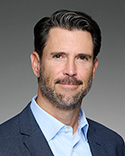
Michael Lastowski

Christopher Winter
The Delaware Supreme Court has now opened the door for corporations, in the context of intra-corporate disputes, to avoid the so-called "American rule," under which each party bears its own costs regardless of which party prevails. Specifically, the court held that a corporation may adopt a bylaw provision that provides for fee-shifting similar to the so-called "English rule," under which a nonprevailing party must pay the fees and expenses of its adversary. While such bylaws are relatively rare, this recent decision will undoubtedly encourage corporations to adopt them. Time will tell whether the Supreme Court's decision will chill future shareholder litigation.
In ATP Tour v. Deutscher Tennis Bund, No. 534, 2013 (Del. May 8, 2014), the Delaware Supreme Court addressed questions of law certified by the U.S. District Court for the District of Delaware relating to a fee-shifting provision in the bylaws of a Delaware non-stock corporation. The bylaws permitted the recovery of attorney fees and costs from unsuccessful plaintiffs in "intra-corporate litigation." Although the court held that such bylaws are not per se enforceable, it also held that the determination of enforceability requires a fact-specific inquiry that, under some circumstances, might lead to a finding of non-enforceability.
In finding that the bylaw was facially valid, the court noted that "neither the [Delaware General Corporation Law] nor any other Delaware statute forbids the enactment of fee-shifting bylaws." Further, the common law does not prohibit such provisions. Finally, the bylaw complied with the DGCL's requirement that bylaws generally related "to the business of the corporation, the conduct of its affairs."
The court, however, cautioned that the enforceability of a particular bylaw "depends on the manner in which it was adopted and the circumstances under which it was invoked." The court said, "The enforceability of a facially valid bylaw may turn on the circumstances surrounding its adoption and use." Since the court was not presented with the facts necessary to make this determination and since certifications only present questions of law, the court could not determine whether the bylaw adopted by ATP Tour Inc.
The district court had also certified the question of whether the "bylaw is rendered unenforceable as a matter of law if one or more board members subjectively intended the adoption of the bylaw to deter legal challenges by members to other potential corporate action then under consideration." Although the court cautioned that equity will not enforce legally permissible bylaws that are adopted for an improper purpose, the court also noted that the intent to deter litigation is not "invariably" an improper purpose. Absent more facts, the court was not able to answer more fully.
Finally, in response to another certified question, the court held that a fee-shifting bylaw amendment is enforceable against members who join a corporation prior to the enactment of the bylaw, since the DGCL permits a corporation to include in its certificate of incorporation a provision authorizing the board of directors to "adopt, appeal or amend bylaws."
The ATP Tour decision may have a broad and far-ranging impact. The adoption of fee-shifting bylaws could serve as a strong deterrent to shareholder litigation. Individual shareholders, whose share of any recovery may be relatively small, could face the prospect of paying overwhelming attorney fees and costs in the event of an adverse result.
Michael R. Lastowski is a member of Duane Morris and the head of its Wilmington office. Licensed to practice in Delaware, Pennsylvania and New York, he primarily represents Chapter 11 debtors.
Christopher M. Winter, a partner with the firm, is a Delaware business lawyer who focuses his practice on Chapter 11 bankruptcy law and proceedings, commercial and corporate finance and transactions, and Delaware corporate and alternative entity law.
Reprinted with permission from Delaware Business Court Insider, © ALM Media Properties LLC. All rights reserved.









